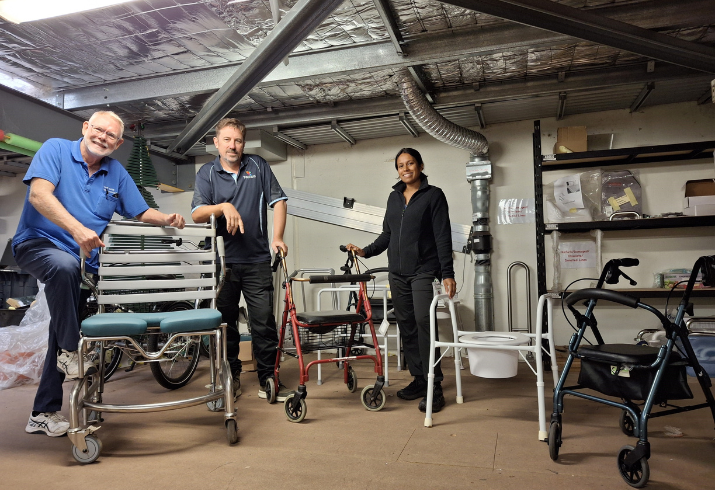Sri Lankan community benefits from Bunbury Regional Hospital’s generous donation

Second-hand equipment donated by Bunbury Regional Hospital is being used to improve healthcare services for disadvantaged villagers in Sri Lanka.
Our South West Allied Health team is leading the initiative, which is giving new life to essential equipment that while no longer meeting Australian Standards, is still deemed fit for purpose.
It includes toilet frames, shower chairs, manual wheelchairs and other hospital equipment that may have otherwise ended up in landfill.
The donation followed a request from senior staff at Divisional Hospital – Batapola to help address a shortage of equipment in the hospital’s inpatient and outpatient departments.
Located about 100km south of the Sri Lankan capital Colombo, the hospital is focussed on the early detection of non-communicable diseases and delivery of preventative care services.
It is also home to a medical and antenatal clinic.
Bunbury Occupational Therapist Ishani De Silva and Allied Health Assistant Robert Scott worked closely with not-for-profit organisation Technology for Ageing and Disability WA (TADWA) to facilitate the donation.
“The Medical Officer in Charge at the Divisional Hospital, Dr Upul Hewage, had previously written a letter requesting support in purchasing essential equipment to improve services for local villagers,” Ms De Silva said.
“This initiative has greatly contributed to improving healthcare services in Galle, Sri Lanka, and allowed WA Country Health Service to engage in the sustainability of international healthcare.
“By donating equipment that no longer meets Australian standards, our health service has been able to support a disadvantaged community abroad.”
The donation coincided with the recent opening of the new Bunbury Regional Distribution Centre, which required the assessment of stock before it was relocated from Bunbury Regional Hospital.
Ms De Silva said it was an example of the health service and a local equipment provider collaborating on a large-scale population health initiative.
“This partnership could inform sustainable practices in how health services manage equipment disposal in the future,” she said.

